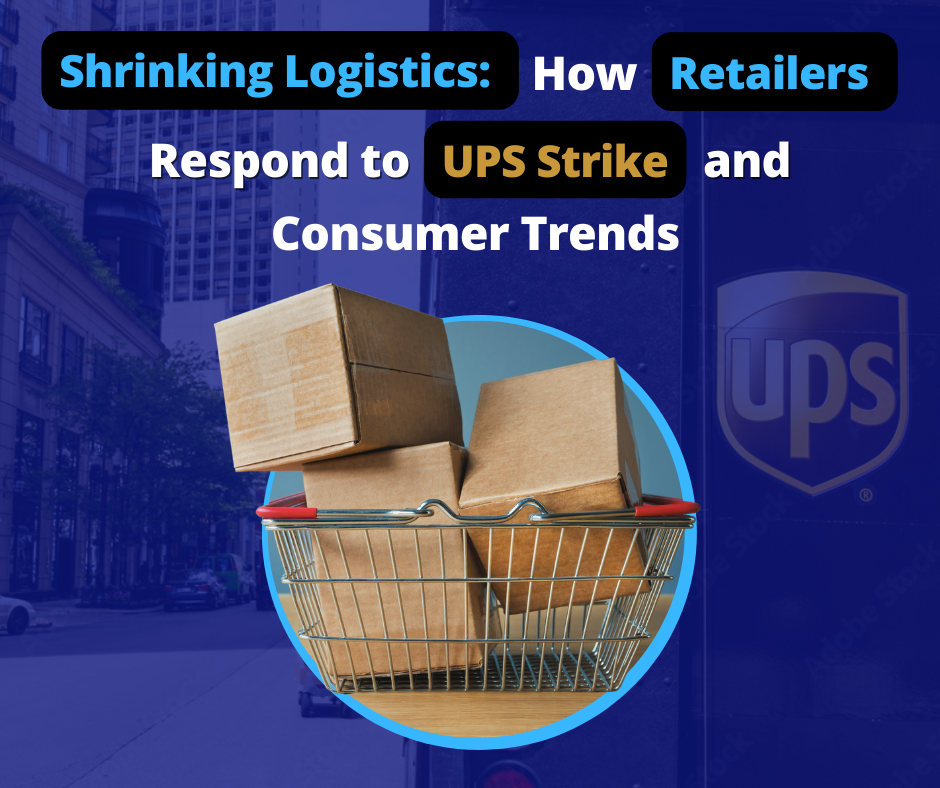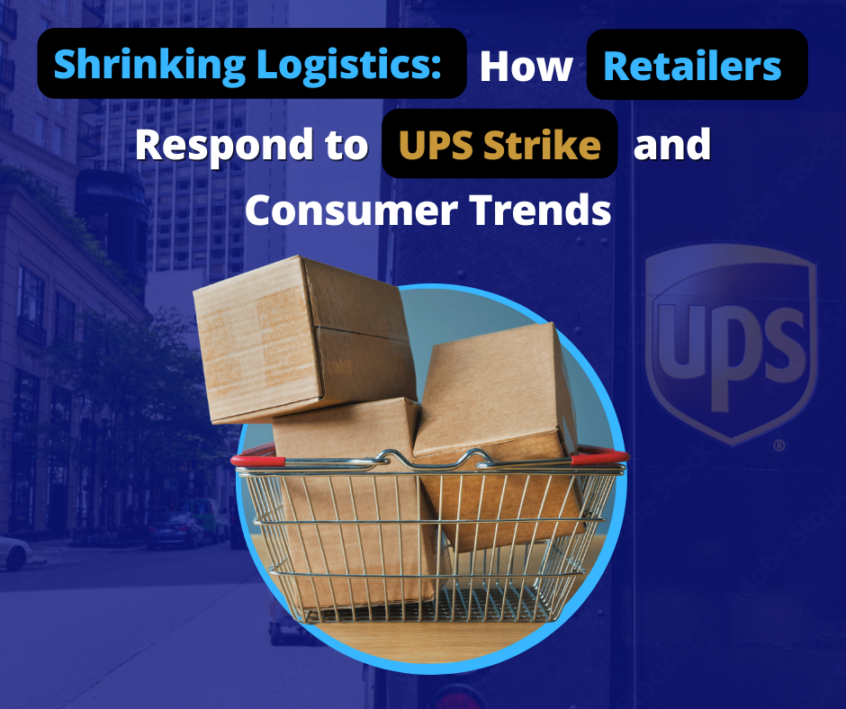
The logistics industry is undergoing significant transformations in response to the changing dynamics of the consumer market. An agreement has been reached to avert a UPS strike, and retailers are compelled to reevaluate and adapt their logistics operations to ensure seamless supply chains and customer satisfaction. This article examines the implications of the potential disruptions that were avoided, exploring how retailers are shrinking their logistics operations to mitigate risks and meet the evolving demands of consumers.
An Industry Undergoing Significant Change
The logistics industry is in the throes of a substantial transition due to the evolving consumer market demands. Three main factors are at the heart of these transitions: advanced technology, changing customer expectations, and sustainability concerns.
Technological Advancements in Logistics
Technological advancements have profoundly impacted the logistics industry, revolutionizing how businesses operate and serve their customers. Adopting advanced technologies, such as artificial intelligence (AI), machine learning, and robotics, has enhanced warehouse management, leading to quicker and more accurate order fulfillment. These technologies enable streamlined inventory management, improved picking and packing processes, and efficient routing, resulting in faster and more reliable deliveries.
For example, according to a report by McKinsey, AI-powered optimization algorithms can reduce logistics costs by 10% to 20% while improving delivery times by up to 40%. This demonstrates the significant impact of technology on enhancing operational efficiency in the logistics industry.
Changing Customer Expectations in Logistics
In today’s fast-paced and digitally-driven world, customer expectations have evolved significantly. Consumers now demand speed, flexibility, and transparency in their shopping experiences. They expect quick delivery—often on the same day of making a purchase—and the ability to track their orders in real time. Furthermore, they seek flexible delivery options, including the ability to choose specific time slots and pick-up locations.
Thus, logistics companies are adopting digital platforms and leveraging technology to provide real-time tracking updates and improve last-mile delivery capabilities. For instance, Amazon introduced the Prime Now service, which offers delivery within two hours, to cater to customers’ desire for faster fulfillment. Similarly, companies like UPS have implemented advanced tracking systems that allow customers to track their packages in real time, providing transparency and peace of mind.
According to a survey conducted by PwC, 88% of consumers consider delivery speed an important factor in their online shopping experience. This highlights the significance of meeting customer expectations for timely deliveries.
Sustainability Concerns Driving Change
Sustainability has become a significant focus for the logistics industry as environmental concerns grow. Companies are under increasing pressure to reduce their carbon footprint and operate in an eco-friendly manner. In response, logistics providers are exploring various strategies to make more sustainable operations.
One key area of focus is the adoption of electric vehicles (EVs) for last-mile deliveries. For instance, companies like DHL and UPS have been integrating electric vans and bikes into their fleets to reduce emissions and promote sustainable transportation. According to a McKinsey report, using electric vehicles in logistics could reduce CO2 emissions by up to 80% per delivery vehicle.
Additionally, companies are investing in smart route planning algorithms to optimize delivery routes and minimize fuel consumption, reducing environmental impact and improving operational efficiency and cost-effectiveness.
Impact on Supply Chains
The averted strike by UPS workers is a relief to supply chains across various industries. As a major player in the parcel shipping market, UPS holds a significant market share in the United States. Any disruption caused by a strike would have had far-reaching consequences, affecting retailers, manufacturers, and consumers.
According to Pitney Bowes Parcel Shipping Index data, UPS held a 24% market share in the U.S. parcel shipping market in 2022, based on parcel volume. This makes it second only to the U.S. Postal Service with a 32% market share. These statistics demonstrate the significant role UPS plays in the logistics landscape and the potential impact of a strike on supply chains.
Diversification & Alternative Shipping Options
Retailers had actively explored alternative shipping options to mitigate the risks of a potential UPS strike. Many were turning to FedEx, the second-largest private carrier in the United States, and the United States Postal Service (USPS). By diversifying their shipping partners, retailers can reduce their dependence on UPS and minimize the impact of any disruptions caused by labor unrest.
According to a Shippo survey, 65% of e-commerce businesses work with multiple carriers to ensure backup options in case of disruptions. This highlights the proactive approach taken by retailers to mitigate supply chain risks and maintain seamless operations.
Collaboration with Third-Party Shippers
In response to the averted strike, retailers increasingly collaborated with third-party shippers to ensure uninterrupted delivery services. These intermediaries work with multiple carriers, including UPS, FedEx, and DHL, to handle shipping needs. By partnering with these logistics service providers, retailers can rely on their expertise and resources to ensure the smooth movement of goods, even during potential disruptions. This collaborative approach provides flexibility and enhances supply chain resilience.
According to Armstrong & Associates study, the third-party logistics (3PL) market is projected to reach $1.2 trillion in global revenue by 2025. This reflects the growing importance of 3PL providers in enabling efficient and reliable logistics operations.
Emphasizing Efficiency & Optimization
Efficiency and optimization are critical factors for retailers in navigating the logistics landscape. By analyzing historical data and employing predictive analytics, retailers can optimize route planning, reduce delivery times, and streamline logistics processes. Real-time tracking of shipments improves transparency and allows for proactive logistics operations management.
A DHL study states that 95% of companies surveyed believe big data analytics will revolutionize supply chain operations, enabling more accurate demand forecasting and optimized inventory management. This demonstrates the increasing recognition of data-driven decision-making in logistics optimization.
Wrapping Up
In conclusion, retailers in the logistics industry are adapting their operations to address the challenges posed by the averted UPS strike and the evolving consumer market. Retailers can navigate potential disruptions and meet customer demands effectively by diversifying their shipping options, collaborating with third-party shippers, emphasizing efficiency and optimization, and closely monitoring supply chains. Shrinking logistics operations while maintaining service quality is essential in an ever-changing market.



